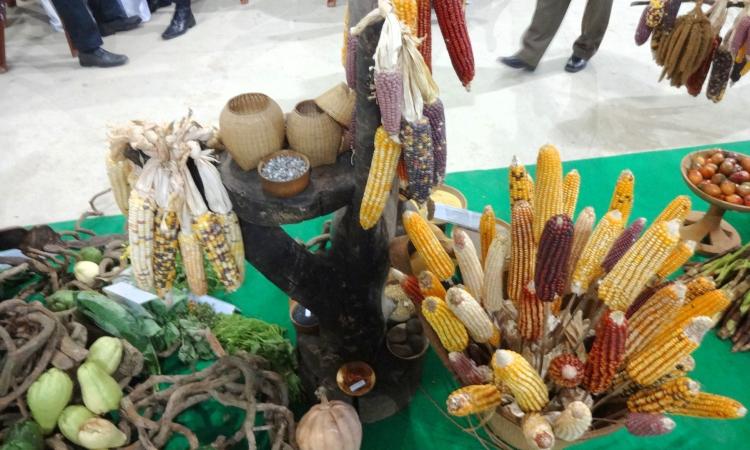
Can we really address the special needs of mountain states by allocating them more money? Isn't it essential that we leave the 'one size fits all' approach and recognise the exclusive challenges and opportunities which mountain farmers face as compared to farmers in the plains?
These were the main questions that were raised in the agriculture session of the Sustainable Mountain Development Summit- III held at Kohima, Nagaland, from September 25-27, 2013.
Drawing participation of government officials, researchers, NGOs and local communities from the 11 mountain states and the hill districts of West Bengal, the session not only discussed the problems but also came up with recommendations to address them.
The top-down approach in policy formulation starting from the Centre till the gram panchayats was termed as the foremost problem responsible for poor results on the ground. Not only does the Centre keep the States out of the consultation process, but also within a State, local communities and functionaries are mostly caught unawares by the decisions taken at the top. Such an approach offers them no way to give their input so that programmes can be better implemented.
This issue can be dealt with better if the consultation process is institutionalised at a community, district, state and Centre level. A policy matter should also be subjected to monitoring and evaluation at regular intervals.
To make agriculture attractive to youngsters who are migrating towards the plains, the participants suggested integrated business models and adequate linkages between the farmers, producers, marketing boards of the states and organisations like NABARD. This will help farmers earn better money and make it an attractive occupation for youngsters as well. The introduction of appropriate technology and mechanisation to reduce drudgery and increase efficency will also help towards this cause.
Irrelevance and exclusiveness of agriculture research is a known fact. Regular consultative meetings with mountain farmers through state universities, research centres and Krishi Vigyan Kendras should be held. Efficient transfer of technology can be ensured through capacity building and incentivisation of extension workers by the universities.
Traditional knowledge based on crops, rituals and practices are not only essential for mountain culture but also bodes well with environment conservation efforts. The state Tourism Department can promote such practices through eco-agro tourism, food fests, cross learning among different mountain communities. Certification and branding, insurance, minimum support price, special compensation schemes and value chain linkages for traditional mountain crops can help preserve the biodiversity and uniqueness of the mountain regions.
An inventory of existing traditional good practices on mountain farming systems can serve as a good input for policy formulation, which should involve representatives of all the stakeholders through panchayats, village councils, NGOs, research institutes, universities and government departments.
/articles/money-alone-wont-do-mountain-states